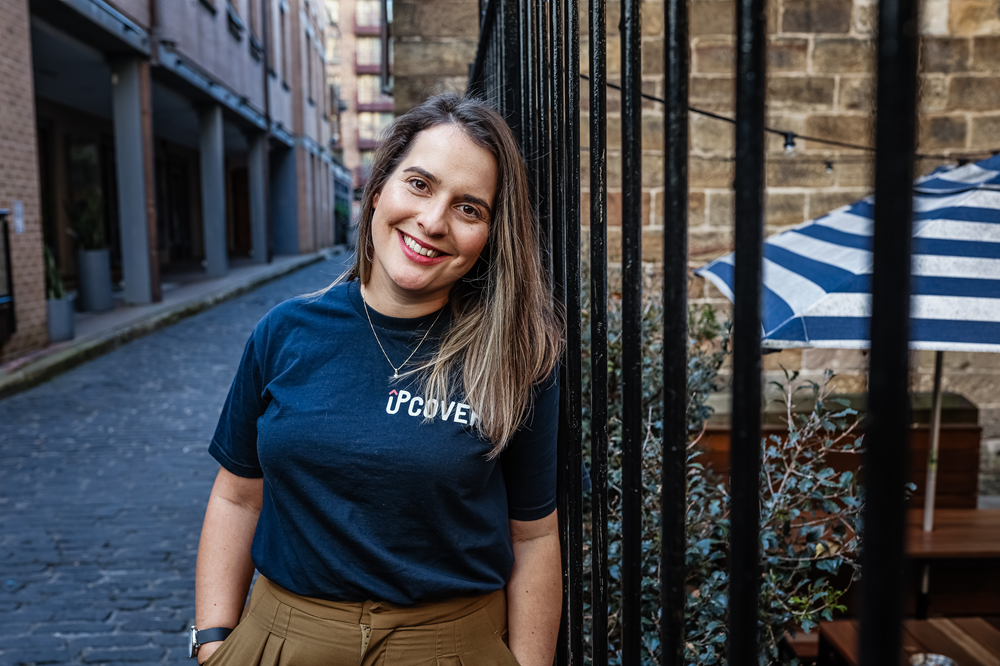Skye Theodorou is CEO & Co-Founder of upcover, an award winning insurtech platform bringing insurance for SMEs in Australia into the 21st century. She reveals what salon owners need to know.
Cosmetic Tattooing – also known as permanent makeup – is in high demand in Australia with many beauty and skin clinics hiring specialists to treat clients. Most commonly, cosmetic tattooing is used to enhance facial features like lips, eyes, eyebrows, and scalp.
If you’re a beauty professional working in the space, it’s important to understand the risks involved with your business so you can ensure you’re adhering to all the relevant requirements and that from an insurance point of view, you’re covered for the work that you do.
Hygiene and infection control
Are you aware of the hygiene, safety and infection control regulations surrounding your work? These can change from state to state, so before you start anything, ensure you’re complying with all of the guidelines and legal requirements for your profession and have the most up-to-date training, certificates and registrations in your field.
You can always check your local council to find up-to-date information on what license or certificates you might need to ensure you have the correct business set up that is in compliance with all safety regulations.
Look into insurance
Whether you’re a sole trader, business owner, or are employed by a salon, it’s important to understand what insurance you might require and what your liabilities are. Every job has its risks and in the event that a client makes a claim against you, being protected with insurance could financially protect and support you through the process.
In particular, looking into Public and Products Liability Insurance and Professional Indemnity Insurance would be a good place for a beauty specialist to start.
What could I be liable for?
When thinking about the risks involved with your business, it’s important to think a little outside-of-the-box because claims can unfortunately be made against many aspects of your business. To begin, let’s look into the types of claims that Public and Products Liability Insurance could cover you for:
Products Liability:
- Faulty product: This might be a claim arising from a faulty product that injured someone. For example, if you have a small business that sells brow products alongside your cosmetic tattooing services and the brow product causes a severe reaction in a customer, they might look to make a claim against you.
Public Liability Insurance:
- Slip, trip, and fall accidents: If your business has a physical location, such as a retail store or a beauty salon, you could be at risk of a claim if someone slips and falls on your premises. For instance, if you mop your shop floor but forget to put out the wet floor signs and a customer walks through and slips over as a result, there is a possibility that the customer will seek legal action against your business.
- Property damage: If there is any damage made to your client’s property. For example, if you’re working on a client’s eyebrows and their expensive bag is damaged including damaging their car keys while your apprentice tramples over it, they could demand you pay for the damage and repair or replacement.
Professional Indemnity:
- Negligence: Your regular client has only previously had brows done and has mentioned they’re nervous about touching their lips and mouth. You have convinced them to add on lip work which has resulted in nerve damage to their face. They could sue you for negligence.
- Wrong Advice: You give advice after a lip treatment on how to reduce swelling and it causes a reaction to your client, there is the potential for a claim to be made.
Insurance checklist
Getting the most appropriate insurance cover for your work isn’t black and white. There are a range of insurance products on the market at different price-points, utilise the below checklist to help you get started.
Check inclusion and exclusions: When chatting to an insurance expert, ensure you tell them about all of the activities you undertake at work so they can double check the inclusions and exclusions in your policy. Sometimes it is safest to include all products you might be selling, online or in store as well as any additional activities so you can have peace of mind for all parts of your business.
Policy Limits: Sometimes your landlord or license requirements may ask you to hold a certain limit of insurance. The requirements may stipulate the policy limit or amounts you need. If you’re unsure, chat to an insurance expert to come to an appropriate amount.
Additional Coverage: Some cosmetic tattooists may require additional coverage beyond professional indemnity and public and product liability insurance. This could include coverage for equipment, glass cover, workers compensation or personal accident insurance. Again, to ensure you’ve got adequate cover for the work you do, chat directly to an expert.
Information provided is general advice only and has been prepared without taking into account any person’s particular objectives, financial situation or needs.
For details check out: www.upcover.com.
This article was produced in partnership with upcover and originally appeared in the Summer 2024 print issue of Professional Beauty.
Read the current issue of our digital magazine here:
- For more news and updates, subscribe to our weekly newsletter
- Follow us on Instagram
- Like us on Facebook
- Join Australia’s largest network of beauty industry professionals on LinkedIn
- Subscribe to our print magazine
Have an idea for a story or want to see a topic covered on our site and in our pages? Get in touch at info@professionalbeauty.com.au.

